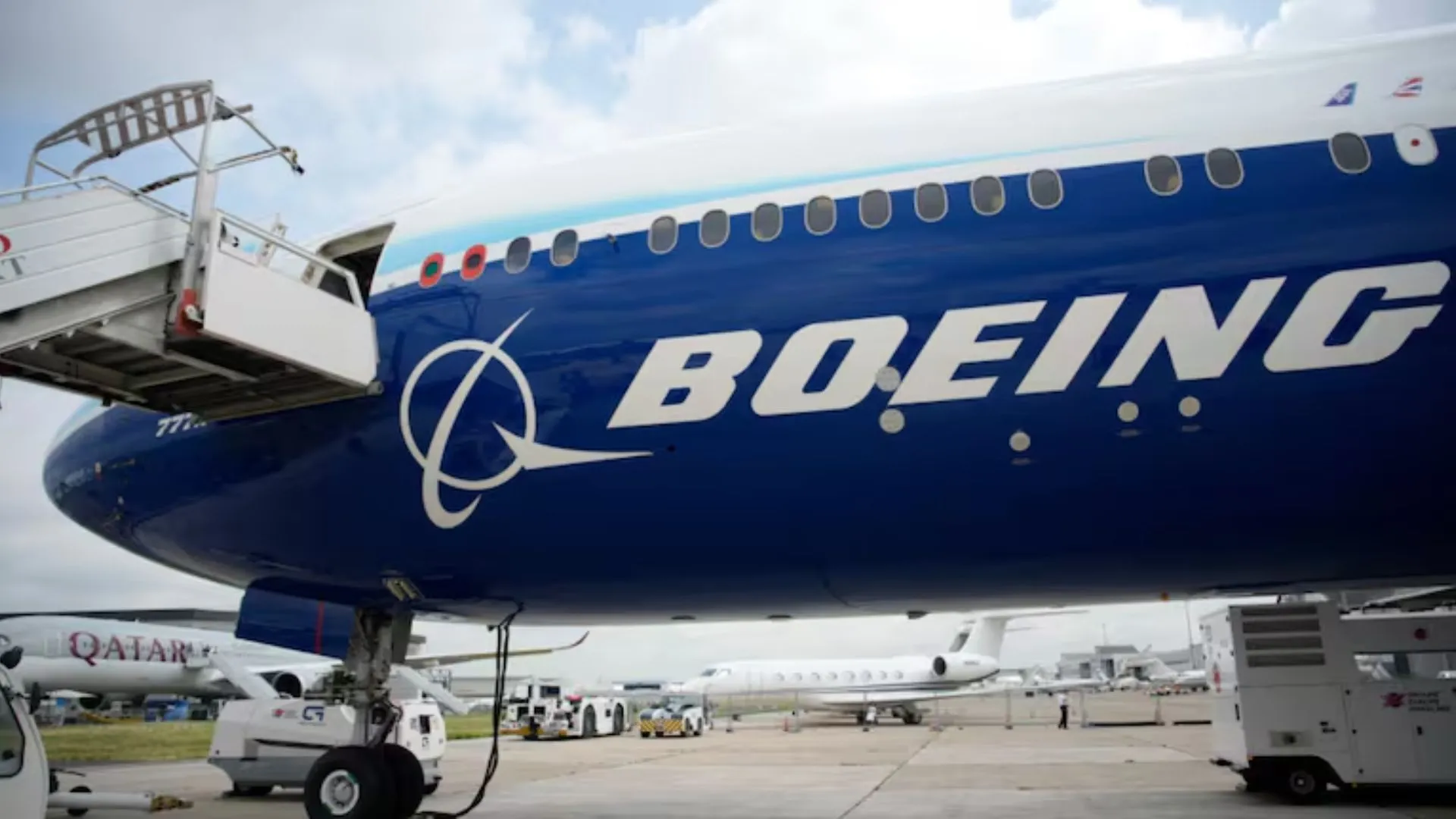Facing mounting financial losses and operational setbacks, Boeing is turning to major banks and investors to raise billions of dollars to sustain its operations. The aerospace giant, grappling with a crippling strike and a series of high-profile crises, has outlined plans to borrow $10 billion from a group of banks and raise an additional $25 billion through stock and debt sales.
Boeing’s Debt Soars as Operational Losses Pile Up
Boeing’s debt has skyrocketed over the past six years, largely driven by core operating losses exceeding $33 billion. The company has faced a significant slowdown in its commercial airplane production, primarily due to a month-long strike by 33,000 members of the International Association of Machinists (IAM). Despite a tentative agreement last month, the strike intensified after union members overwhelmingly rejected the deal, leading to a complete halt in production.
In an effort to mitigate the financial strain, Boeing’s new CEO, Kelly Ortberg, announced plans to reduce the company’s global workforce by 10%. Boeing’s credit rating has plummeted to the lowest investment-grade level, and some analysts warn it is at risk of being downgraded to “junk” status, which would increase its borrowing costs.
A Series of Setbacks: From the 737 Max Crashes to Safety Violations
Boeing’s financial woes have been compounded by a series of highly publicized problems. Most notably, the company is still reeling from two fatal 737 Max crashes, which killed 346 people and prompted a 20-month grounding of its best-selling aircraft. The company pleaded guilty to deceiving the Federal Aviation Administration (FAA) during the certification process for the 737 Max and is currently awaiting a judge’s ruling on a plea agreement that includes up to $487 million in fines.
The company has also been embroiled in numerous safety concerns. Whistleblower testimony before Congress exposed that Boeing’s production processes prioritized profits over safety, leading to violations of the company’s internal rules. This was underscored earlier this year when a door plug blew off a 737 Max mid-flight, forcing investigations into the plane’s production and safety standards.
The IAM Strike: A New Blow to Boeing’s Recovery
The IAM strike, which entered its second month, has further disrupted Boeing’s already strained production. A tentative agreement had been reached between Boeing and the union leadership, offering a 25% raise for workers, but it was overwhelmingly rejected by union members, who voted for the strike. Boeing’s offer to increase raises to 30% was also rejected by union negotiators.
Despite these challenges, Boeing’s market position as one of only two manufacturers of full-size commercial jets—alongside its European rival Airbus—has allowed the company to secure loans and raise capital in a way that other companies might not be able to. Boeing’s monopoly in this duopoly ensures its survival, with a backlog of orders extending years into the future.
Limited Competition and Long-Term Survival
Boeing’s status as part of the duopoly in the commercial aircraft industry guarantees its place in the market. Even though it has lost some ground to Airbus in recent years, its dominance remains largely unchallenged. However, any airline that cancels its orders for Boeing jets and turns to Airbus would face delays of up to five years for new deliveries, ensuring Boeing’s market share for the foreseeable future.
Nevertheless, Boeing’s immediate future remains uncertain. The ongoing strike has delayed deliveries of key aircraft, including the 737 Max, 767, and 777 freighters, putting additional pressure on its cash flow. The company also announced that its highly anticipated 777X aircraft, originally slated for delivery in 2023, has encountered more delays following issues discovered during test flights. The new timeline now pushes the 777X’s deliveries back to 2026.
Conclusion: Boeing’s Struggles and the Road Ahead
While Boeing remains a key player in the global aerospace industry, its recent string of operational setbacks, financial losses, and safety controversies have cast a shadow over its future. With its debt climbing, a delayed product lineup, and ongoing labor disputes, the company faces significant hurdles. However, Boeing’s position in the market, alongside the continuing need for commercial aircraft, provides a buffer against the challenges it currently faces. The company’s ability to raise funds from Wall Street will be crucial in determining its recovery and long-term survival.
(INCLUDES INPUTS FROM ONLINE SOURCES)
ALSO READ: Tokyo Voices Alarm As China Conducts Military Drills Near Taiwan




